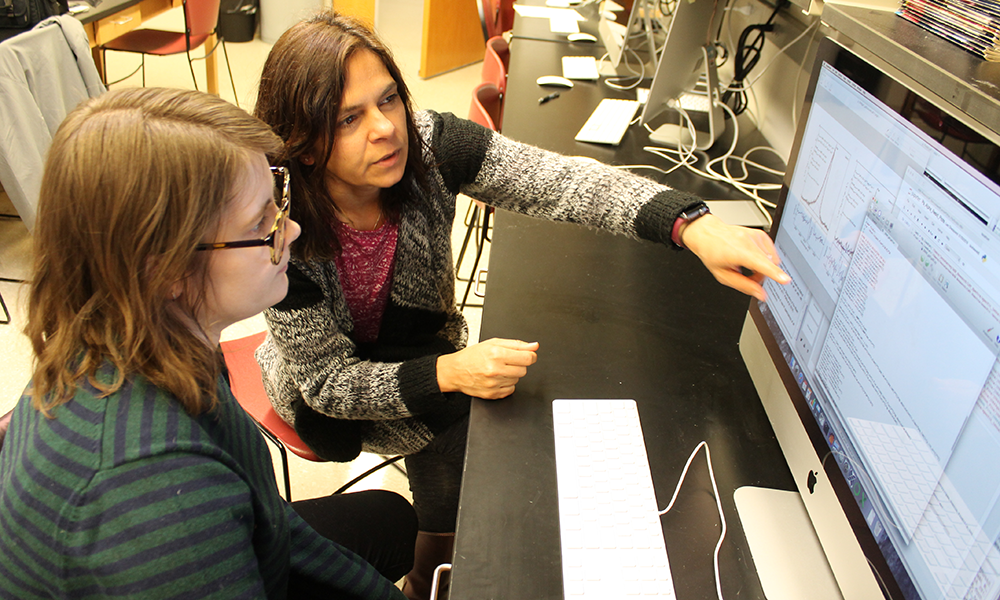JMU astrophysicist anticipates launch of James Webb Telescope
JMU News
Harrisonburg, Virginia — A James Madison University astrophysicist who researches black holes is looking forward to the Dec. 18 launch of the James Webb Space Telescope.
Professor Anca Constantin said the new telescope will provide much clearer images of deep space than the Hubble Telescope, which is good news for her research.
One of the things Constantin hopes to see more clearly is the impending merger of three galaxies, a discovery that gained worldwide attention in 2020. One of Constantin’s students, Jenna Harvey, contributed research to the discovery.
The Webb telescope will provide images at a higher resolution than Hubble because it’s more than twice the size of Hubble, with the primary mirror spanning about 21.3 feet. “It’s all about the collective area,” Constantin said. “The more photons you get on the mirror or the lens, the more information you get.
The Webb telescope also will have the advantage of viewing the cosmos in near infrared, a wavelength that will look past clouds and dust, providing newfound images of star and planet formations. Scientists will be able to peer deeper in space than they could with Hubble, which means further back in time.
“Hubble discovered the toddler galaxies in the universe,” said Constantin. “James Webb will discover the infant galaxies, the newborns of the universe. We only have predictions for those.”
The Webb Telescope will be launched to a Lagrange point, one of five points in space where objects can remain stable as they orbit in relation to the sun and Earth. "What makes this location special is that the telescope will be able to stay aligned with the Earth as it moves around the Sun, therefore allowing the satellite’s large sunshield to protect the telescope from the light and heat coming from the Sun, the Earth and the Moon," Constantin said.
Researchers will have the opportunity to work with telescope directly, but must submit proposals, a very competitive process. Constantin said only about 2% of proposals get approved. However, as observations are made, the data collected is generally made available to other scientists after a proprietary period, usually about one year.
Constantin is available to speak on her research and the James Webb Space Telescope.
# # #
Contact: Eric Gorton, gortonej@jmu.edu, 540-908-1760
More information about James Madison University, including rankings and recognitions can be found at About JMU.
